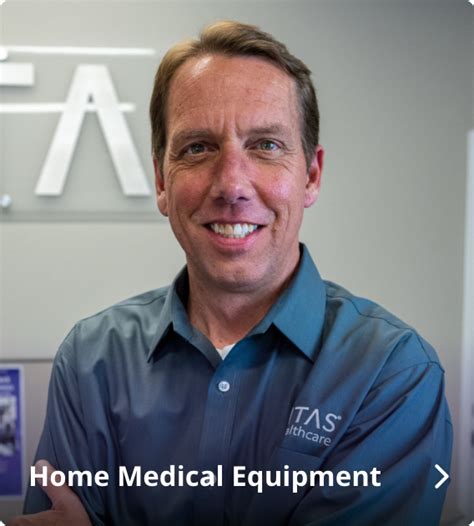Nurse Practitioner Curriculum

The Nurse Practitioner (NP) curriculum is a vital component of advanced nursing education, designed to equip nurses with the knowledge and skills necessary to provide high-quality, patient-centered care. This comprehensive educational pathway is a critical step for nurses seeking to expand their scope of practice and take on more autonomous roles in healthcare delivery. The NP curriculum offers a specialized blend of advanced nursing theory and practical skills, preparing nurses to diagnose and treat a wide range of health conditions, manage complex patient cases, and deliver evidence-based care across various healthcare settings.
Advanced Nursing Theory and Clinical Practice

The core of the Nurse Practitioner curriculum revolves around an intensive study of advanced nursing theory, which forms the foundation for clinical practice. This theoretical framework encompasses a broad range of subjects, including advanced pathophysiology, pharmacology, and health assessment. Through these courses, NPs-to-be deepen their understanding of the complex interplay between disease processes, medications, and patient physiology, equipping them to make informed clinical decisions.
Advanced Pathophysiology
Advanced pathophysiology courses delve into the intricate mechanisms underlying various health conditions, exploring how diseases affect normal body functions. Students examine the etiology, pathogenesis, and clinical manifestations of common and complex diseases, learning to recognize signs and symptoms, interpret diagnostic data, and develop appropriate treatment plans. For instance, an NP student might study the pathophysiology of diabetes, considering how insulin resistance and pancreatic beta-cell dysfunction lead to hyperglycemia and the range of complications associated with this chronic condition.
Key topics covered in advanced pathophysiology include:
- Cardiovascular, respiratory, and gastrointestinal disorders
- Endocrine and metabolic diseases
- Neurological conditions and mental health disorders
- Infectious diseases and immunological disorders
- Oncology and hematological conditions
Pharmacology for Nurse Practitioners
Pharmacology courses are a critical component of the NP curriculum, providing students with an in-depth understanding of medications and their effects on the human body. Students learn about drug classifications, mechanisms of action, side effects, and interactions, equipping them to make informed decisions about medication selection, dosing, and administration. The course often involves case studies and simulations to apply pharmacological principles to real-world clinical scenarios.
Pharmacology for NPs covers:
- Principles of drug action and interactions
- Commonly used medications in primary care settings
- Specialty medications for specific conditions (e.g., cancer, HIV)
- Polypharmacy and medication management in older adults
- Therapeutic drug monitoring and adjusting dosages
Health Assessment and Diagnostic Reasoning
Health assessment courses focus on developing advanced clinical skills in patient evaluation, including comprehensive history taking, physical examination techniques, and diagnostic reasoning. Students learn to critically analyze patient data, interpret laboratory and diagnostic test results, and make accurate diagnoses. This course often involves hands-on training with standardized patients and simulations to refine assessment skills.
Key areas of focus in health assessment include:
- Advanced physical examination techniques
- Interpretation of diagnostic imaging and laboratory tests
- Clinical decision-making and diagnostic reasoning
- Differential diagnosis and management of common health conditions
- Health promotion and disease prevention strategies
Clinical Practice and Specialty Training

The practical application of advanced nursing theory is a cornerstone of the NP curriculum. Clinical rotations provide students with hands-on experience in diverse healthcare settings, allowing them to apply their knowledge under the supervision of experienced healthcare professionals. These rotations expose students to a wide range of patient populations, health conditions, and care settings, fostering the development of clinical expertise and specialized skills.
Primary Care Clinical Rotations
Primary care clinical rotations are a fundamental part of the NP curriculum, offering students the opportunity to provide holistic, patient-centered care across the lifespan. These rotations often take place in community health centers, physician offices, and rural clinics, where NPs-in-training gain experience managing acute and chronic health conditions, performing physical examinations, and prescribing medications. Students learn to address a broad spectrum of healthcare needs, from preventive care and health promotion to the management of complex chronic diseases.
Specific clinical experiences in primary care may include:
- Wellness checks and preventive health services
- Acute care for minor illnesses and injuries
- Chronic disease management (e.g., diabetes, hypertension)
- Women's health services (gynecological exams, contraceptive management)
- Pediatric care and developmental assessments
Specialty Clinical Rotations
Beyond primary care, the NP curriculum often includes specialized clinical rotations tailored to students' career interests and aspirations. These rotations offer focused training in specific areas of healthcare, such as cardiology, oncology, mental health, or women's health. For example, an NP student interested in cardiology might rotate through a cardiac care unit, where they would gain experience managing patients with heart disease, performing cardiac assessments, and interpreting cardiac diagnostics.
Specialty rotations provide in-depth exposure to:
- Advanced assessment and management of complex health conditions
- Specialized therapeutic interventions and procedures
- Collaboration with interprofessional healthcare teams
- Evidence-based practice and clinical research
- Leadership and management in specialized healthcare settings
Clinical Research and Evidence-Based Practice
The NP curriculum emphasizes the importance of evidence-based practice, teaching students to critically evaluate research and integrate the latest clinical guidelines into their practice. Courses in clinical research methods equip students with the skills to appraise scientific literature, design research studies, and apply research findings to improve patient outcomes. This focus on research and evidence ensures that NPs are at the forefront of clinical innovation and can provide the highest quality of care based on the latest advancements in healthcare.
Professional Development and Interprofessional Collaboration
The Nurse Practitioner curriculum extends beyond clinical skills and theory, also focusing on professional development and interprofessional collaboration. These aspects are crucial for NPs to thrive in complex healthcare environments and effectively contribute to healthcare teams.
Leadership and Management
Leadership and management courses prepare NPs for administrative and leadership roles within healthcare organizations. Students learn about healthcare systems, policy, and management principles, developing the skills to lead and manage healthcare teams, design and implement healthcare initiatives, and contribute to healthcare policy development. These courses often involve case studies and simulations to apply leadership and management principles to real-world healthcare scenarios.
Key topics in leadership and management include:
- Healthcare systems and policy analysis
- Healthcare finance and budgeting
- Quality improvement and patient safety
- Interprofessional collaboration and team management
- Healthcare ethics and professional responsibility
Interprofessional Education and Collaboration
Interprofessional education is an integral part of the NP curriculum, fostering collaboration and communication between different healthcare professions. Through interprofessional courses and clinical rotations, NP students work alongside physicians, pharmacists, physical therapists, and other healthcare professionals, learning to coordinate care, resolve interprofessional conflicts, and provide patient-centered care as part of a cohesive healthcare team. This collaborative approach is essential for improving patient outcomes and enhancing the overall quality of healthcare delivery.
Interprofessional education focuses on:
- Team-based care and effective communication
- Role delineation and scope of practice across professions
- Conflict resolution and collaborative decision-making
- Patient-centered care and shared governance
- Ethical considerations in interprofessional practice
Conclusion: Preparing the Next Generation of Nurse Practitioners
The Nurse Practitioner curriculum is a rigorous and comprehensive educational journey, designed to transform experienced nurses into advanced practice providers capable of delivering high-quality, patient-centered care. By combining advanced nursing theory with hands-on clinical practice, specialized training, and a focus on professional development and interprofessional collaboration, the NP curriculum equips graduates with the skills and knowledge to make a significant impact on patient outcomes and healthcare delivery.
As the demand for healthcare services continues to rise and the healthcare landscape evolves, Nurse Practitioners will play an increasingly vital role in meeting the healthcare needs of diverse patient populations. The NP curriculum is therefore not just an educational pathway, but a pathway to a fulfilling and impactful career, offering nurses the opportunity to make a profound difference in the lives of their patients and communities.
What are the key differences between a Nurse Practitioner curriculum and a traditional nursing program?
+The Nurse Practitioner curriculum is designed for experienced registered nurses seeking to expand their scope of practice. It focuses on advanced nursing theory, clinical practice, and specialized training, preparing nurses for autonomous decision-making and leadership roles. In contrast, traditional nursing programs, such as the Bachelor of Science in Nursing (BSN), provide a broader foundation in nursing care, covering a wide range of nursing competencies and skills, but with less emphasis on advanced practice and leadership.
How long does it typically take to complete a Nurse Practitioner program?
+The duration of a Nurse Practitioner program can vary depending on several factors, including the specific program requirements, the student’s prior nursing experience and education, and whether the program is completed on a full-time or part-time basis. On average, full-time NP programs can range from 18 months to 3 years, while part-time programs may take longer to complete.
What are some of the career paths available to Nurse Practitioners upon graduation?
+Nurse Practitioners have a diverse range of career opportunities available to them. Some common career paths include primary care NP, specializing in providing comprehensive healthcare services to patients of all ages; acute care NP, focusing on managing critically ill patients in hospital settings; psychiatric-mental health NP, providing mental health care and counseling services; and women’s health NP, offering specialized care for women’s reproductive and gynecological health. Additionally, NPs can pursue leadership and management roles within healthcare organizations or engage in clinical research and education.



